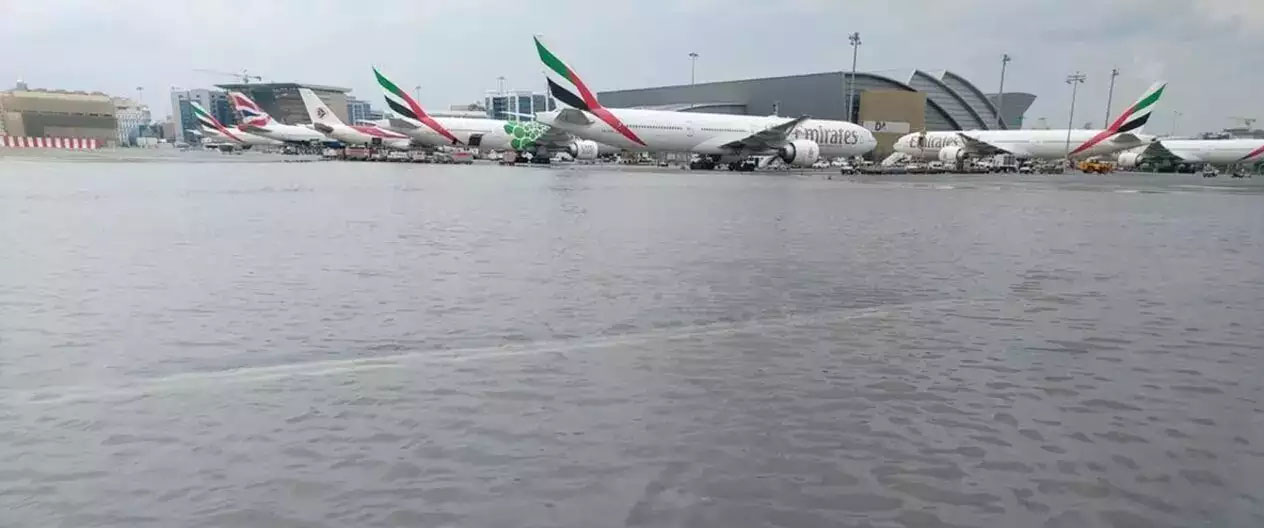
Photo Credit: Emirates
Emirates, the renowned airline, faced challenges as heavy rains pounded Dubai, the second-busiest international airport globally. This weather event forced flight cancellations and delays, impacting travel plans for many passengers. Concurrently, residents and students were advised to work and study from home as a precautionary measure.
This recent storm follows closely on the heels of record-setting rainfall just two weeks prior, which triggered devastating floods across the United Arab Emirates (UAE) and neighboring Oman. The previous deluge claimed lives and brought cities like Dubai to a standstill. The floods in Oman resulted in tragic losses, including the heartbreaking loss of 10 children whose school bus was swept away.
While the recent rainfall was not as severe as the previous event, it still significantly exceeded typical precipitation levels for this time of year. Dubai experienced 20 millimeters (about 0.79 in) of rainfall in just 12 hours, double its average for the entire months of April and May combined. Abu Dhabi saw even more remarkable figures, with 34 millimeters (about 1.34 in) of rainfall in a mere 24 hours, quadrupling its usual precipitation for this period.
Authorities and residents appeared to be more prepared this time around. Measures such as clearing drains and issuing widespread emergency notifications helped mitigate the impact of the storm. Remote working and studying were enforced in affected areas, while roads leading to flood-prone valleys were closed off to prevent accidents.
Additionally, people were advised to avoid mountainous, desert, and coastal regions. Scientists have linked the recent extreme weather events to climate change. Research conducted under the World Weather Attribution initiative revealed that global warming has intensified rainfall events in the UAE and Oman by 10 to 40%. The unprecedented rainfall experienced in the UAE, the heaviest in 75 years of recorded history, underscores the urgency of addressing climate change.
As extreme weather events become more frequent and severe, it is imperative for governments, businesses, and individuals to prioritize climate action. From implementing sustainable practices to advocating for policy changes, collective efforts are needed to mitigate the impacts of climate change and build resilience against future disasters. The recent storms in the UAE serve as a stark reminder of the urgent need to address climate change and its far-reaching consequences.
















